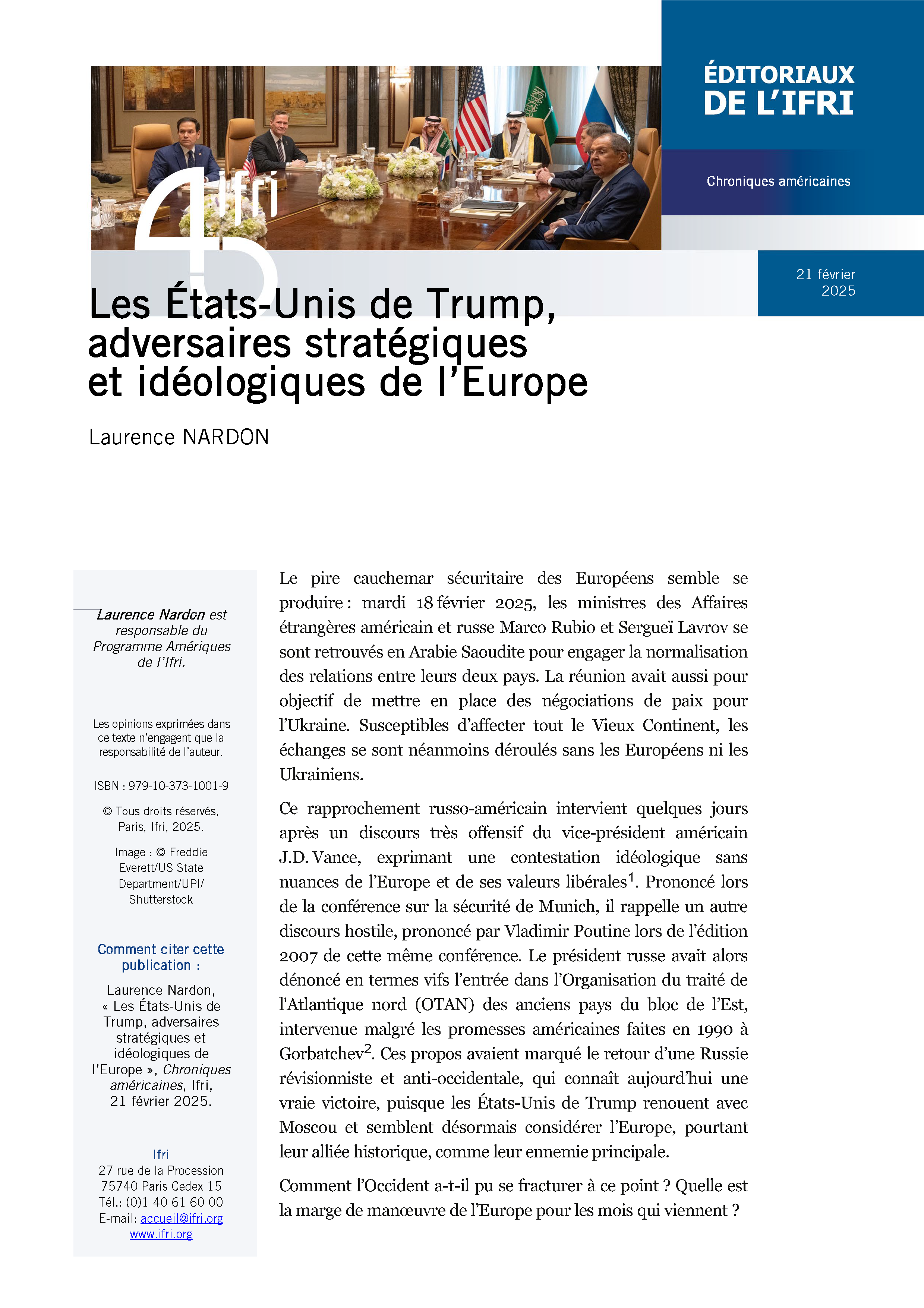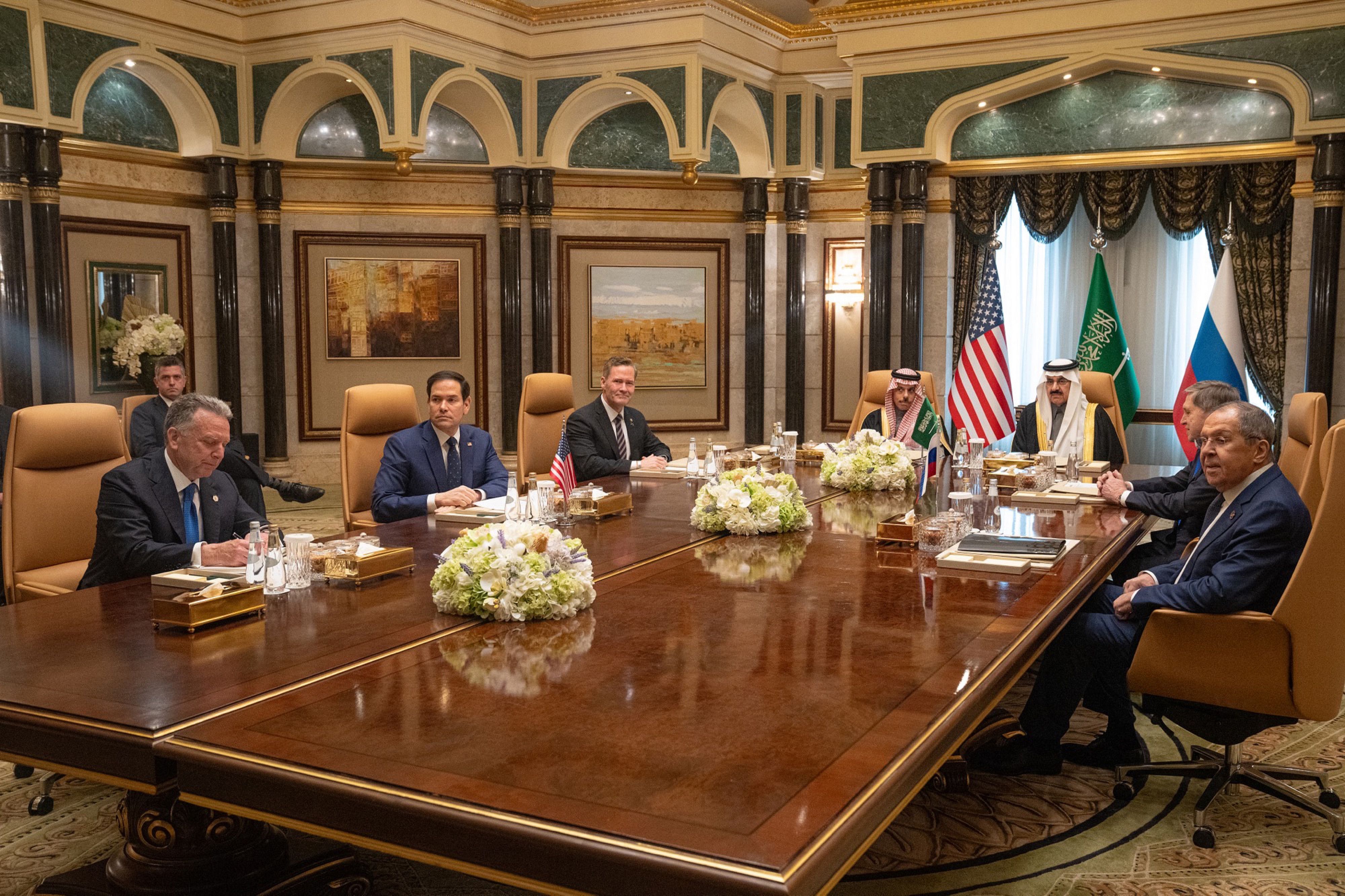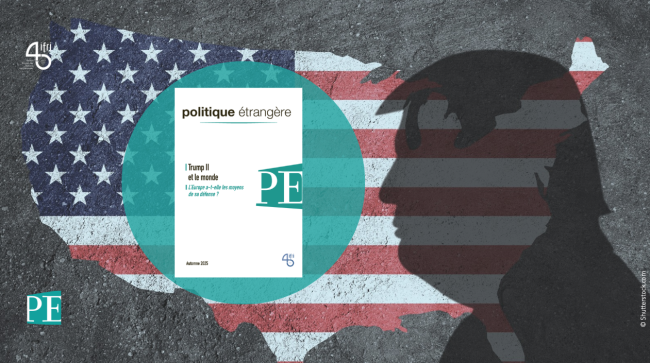How the US under Trump Became a Strategic and Ideological Adversary of Europe

The Europeans' worst security nightmare seems to be coming true: on Tuesday, February 18, 2025, U.S. Secretary of State Marco Rubio and Russian Foreign Minister Sergey Lavrov met in Saudi Arabia to initiate the normalization of relations between their two countries. The meeting also aimed to set up peace negotiations for Ukraine. However, despite having the potential to affect the entire continent, the discussions took place without the Europeans or the Ukrainians being present.

This Russo-American rapprochement comes just days after a highly combative speech by U.S. Vice President JD Vance, in which he expressed a blunt ideological rejection of Europe and its liberal values. Delivered at the Munich Security Conference, it echoed a similar hostile speech made by Vladimir Putin at the 2007 edition of the same conference. At that time, the Russian president harshly criticized the NATO accession of former Eastern Bloc countries, a move that had taken place despite American promises made to Gorbachev in 1990. These remarks marked the return of a revisionist, anti-Western Russia, which has now achieved a real victory, as Trump’s United States is reconnecting with Moscow and now seems to view Europe—its historical ally—as its primary adversary.
How has the West become so fractured? What levers for action does Europe have in the coming months?
This editorial is only available in French.

Available in:
Themes and regions
ISBN / ISSN
Share
Related centers and programs
Discover our other research centers and programsFind out more
Discover all our analysesBrazil One Year Away from the October 2026 General Elections
Brazil’s general elections will be held on October 4, 2026, to elect the president, vice-president, members of the National Congress, governors, deputy governors and state legislative assemblies. For the presidential and gubernatorial elections, a second round will be held on October 25 if no candidate obtains a majority of the votes in the first round.
Trump II: The Clash of Ideologies
The second Trump administration brings together a number of very different, even opposing, ideologies: far-right populism, the reactionary Christian right, paleolibertarianism, and technolibertarianism. The most visible measures taken since Donald Trump's return to the White House have been populist in nature, with the president's authority strengthened, checks and balances weakened, a form of identity politics embraced, and economic nationalism implemented.
Water in Mexico: an Emergency that Will Wait
Access to water is already and will become increasingly problematic for Mexican economic actors due to the progressive scarcity of the resource resulting from climate change, a geographical distribution that does not coincide with that of the population or economic activity, and management that has so far been far too lax.
Donald Trump v. the States: the Case of New York
While the disruptive policies of the second Trump administration are being implemented at the federal level and on the international stage, they are also being felt in the federal states and major cities across the country. In the spring of 2025, several cases involving the state and city of New York demonstrate that the president’s attacks on environmental protection, the separation of powers, freedom of speech, etc., are also being carried out at the local level.












